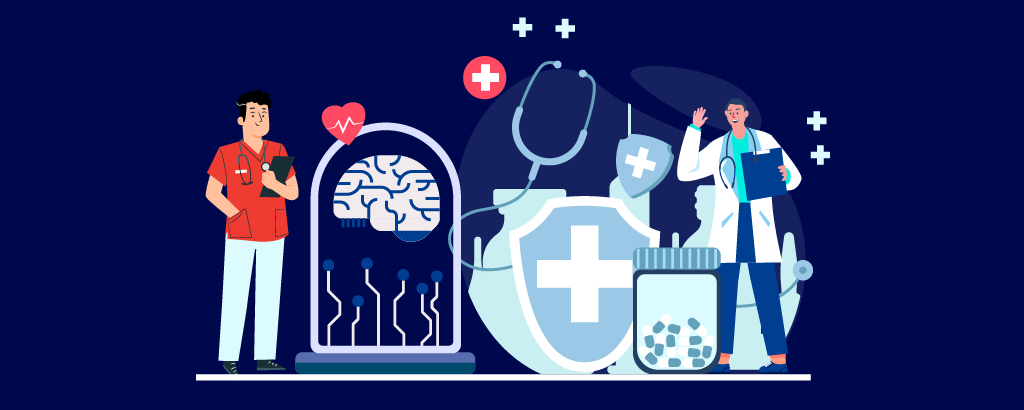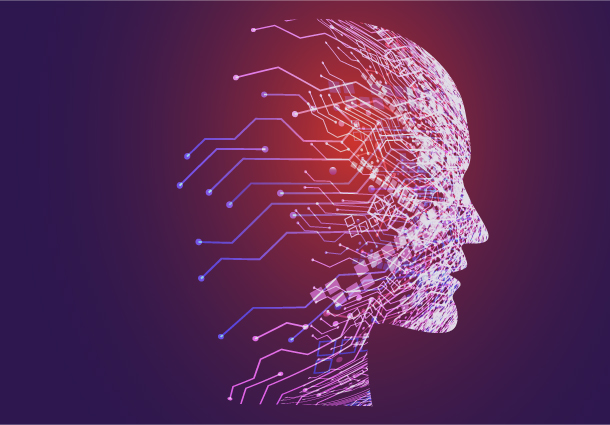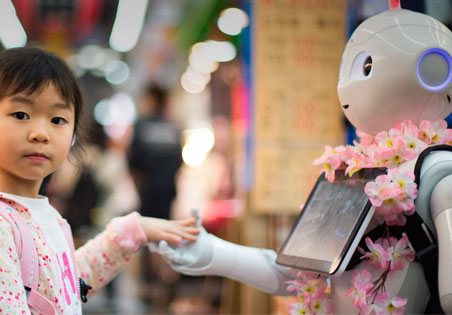Overhauling Healthcare with Deep Learning’s Hegemony
Deep learning, a subset of artificial intelligence (AI), employs advanced neural networks to process vast datasets, recognize patterns, and make intricate decisions with minimal human intervention. The synergy between healthcare and deep learning has the potential to metamorphose diagnostic accuracy, treatment methodologies, and patient care to a remarkable degree. 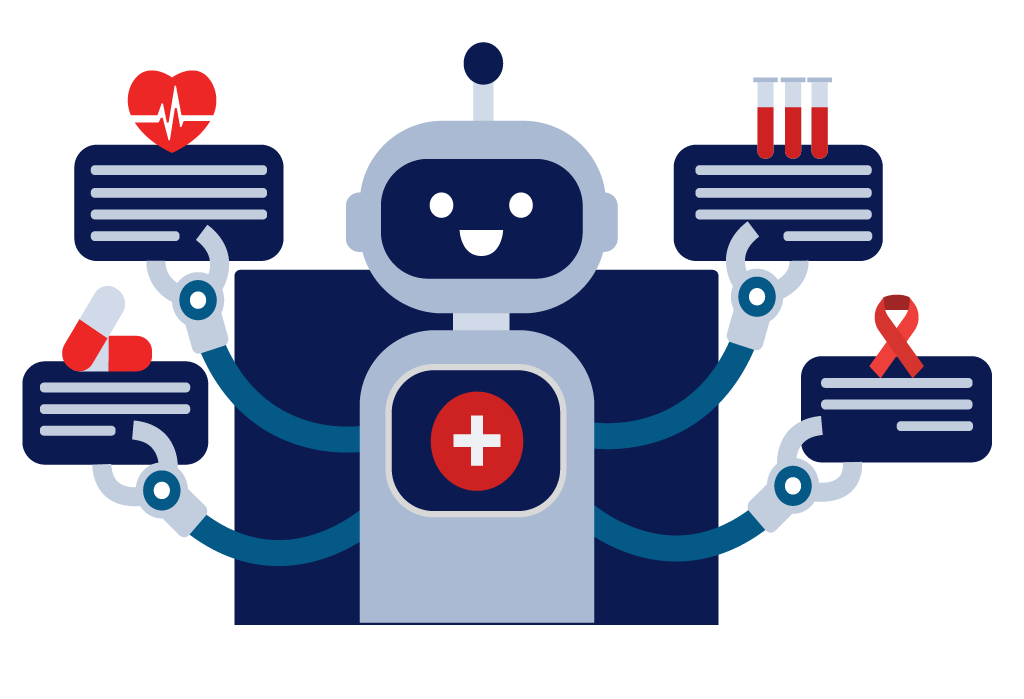 Its profound impact is evident in diagnostic accuracy, where algorithms are trained to interpret complex medical imaging, from X-rays to MRI scans, with extraordinary precision. Moreover, predictive analytics fueled by deep learning algorithms aids in anticipating disease progression, allowing for early intervention and personalized treatment strategies. The fusion of deep learning in healthcare is not merely confined to diagnosis but extends to drug discovery, genomics, and administrative processes, streamlining operations and accelerating medical breakthroughs.
Its profound impact is evident in diagnostic accuracy, where algorithms are trained to interpret complex medical imaging, from X-rays to MRI scans, with extraordinary precision. Moreover, predictive analytics fueled by deep learning algorithms aids in anticipating disease progression, allowing for early intervention and personalized treatment strategies. The fusion of deep learning in healthcare is not merely confined to diagnosis but extends to drug discovery, genomics, and administrative processes, streamlining operations and accelerating medical breakthroughs.
The adaptability and continuous learning capabilities of deep learning models empower healthcare professionals to harness colossal data volumes, extracting insights that were once inconceivable. From recognizing rare diseases to predicting patient outcomes, deep learning offers an unparalleled avenue for innovation and efficiency in healthcare. The profound potentials of deep learning in healthcare aren’t confined to a single facet; it’s a pivotal transformative force that shapes a new era, marking an evolution that promises improved diagnostics, advanced therapies, and, most importantly, better patient outcomes. This amalgamation is an embodiment of hope, progress, and a transformative future in the healthcare landscape.
Elevating Healthcare: Unveiling the Multifaceted Benefits of Deep Learning
The integration of deep learning bestows a multitude of transformative advantages, redefining patient care, diagnostics, and operational efficiencies, amidst the domain of healthcare. At its nucleus, deep learning stands as a powerful tool, leveraging neural networks to process and analyze vast and complex datasets, fundamentally altering the healthcare landscape. One of its remarkable benefits is witnessed in diagnostics, what is deep learning models, trained on extensive medical imaging data, exhibit unparalleled accuracy in interpreting X-rays, MRI scans, and pathology images, enabling swift and precise diagnosis.
Furthermore, predictive analytics driven by deep learning algorithms empowers healthcare professionals to forecast disease progression, allowing for early intervention and tailored treatment strategies. 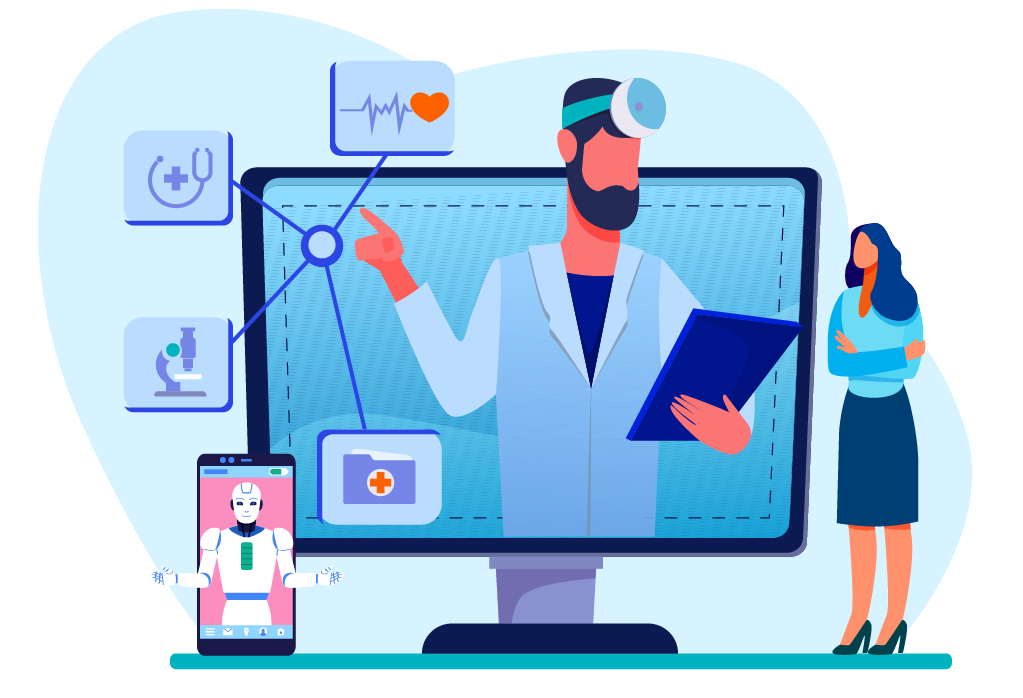 This predictive capability not only enhances patient outcomes but also contributes significantly to preventive healthcare. In drug discovery and development, deep learning expedites the identification of potential compounds and accelerates the validation process, fostering the creation of innovative medications and treatments. Administratively, the implementation of deep learning optimizes operational processes by enhancing efficiency, streamlining workflows, and reducing errors. It enables intelligent automation in patient scheduling, resource allocation, and billing systems, freeing up valuable time for healthcare providers to focus more on patient care.
This predictive capability not only enhances patient outcomes but also contributes significantly to preventive healthcare. In drug discovery and development, deep learning expedites the identification of potential compounds and accelerates the validation process, fostering the creation of innovative medications and treatments. Administratively, the implementation of deep learning optimizes operational processes by enhancing efficiency, streamlining workflows, and reducing errors. It enables intelligent automation in patient scheduling, resource allocation, and billing systems, freeing up valuable time for healthcare providers to focus more on patient care.
The adaptability and learning capabilities of deep learning algorithms continuously refine themselves, extracting insights from vast datasets that were once unmanageable. From rare disease identification to the forecasting of patient outcomes, deep learning is reshaping the healthcare sector. This amalgamation of technological prowess and medical expertise promises a future where healthcare is more precise, efficient, and ultimately, patient-centric.
Transforming Healthcare: The Evolutionary Impact of Deep Learning in the Industry
The synergy between deep learning and healthcare has initiated a monumental transformation, ushering in a new era of innovation and precision. Deep learning, a subset of artificial intelligence (AI), has emerged as a pioneering force reshaping the healthcare industry. Artificial Intelligence in healthcare impact is omnipresent, revolutionizing diagnosis, treatment, and patient care. At the crux of this transformation lies the exceptional ability of deep learning models to navigate vast datasets, interpret complex medical imaging, and extrapolate patterns that elevate diagnostic accuracy to unprecedented levels.
In addition to bolstering early disease detection, the remarkable accuracy achieved by deep learning models in analyzing medical images significantly reduces the margin of error in diagnoses. These advanced algorithms process intricate imaging data, identifying subtle nuances and abnormalities that might be overlooked by human interpretation. 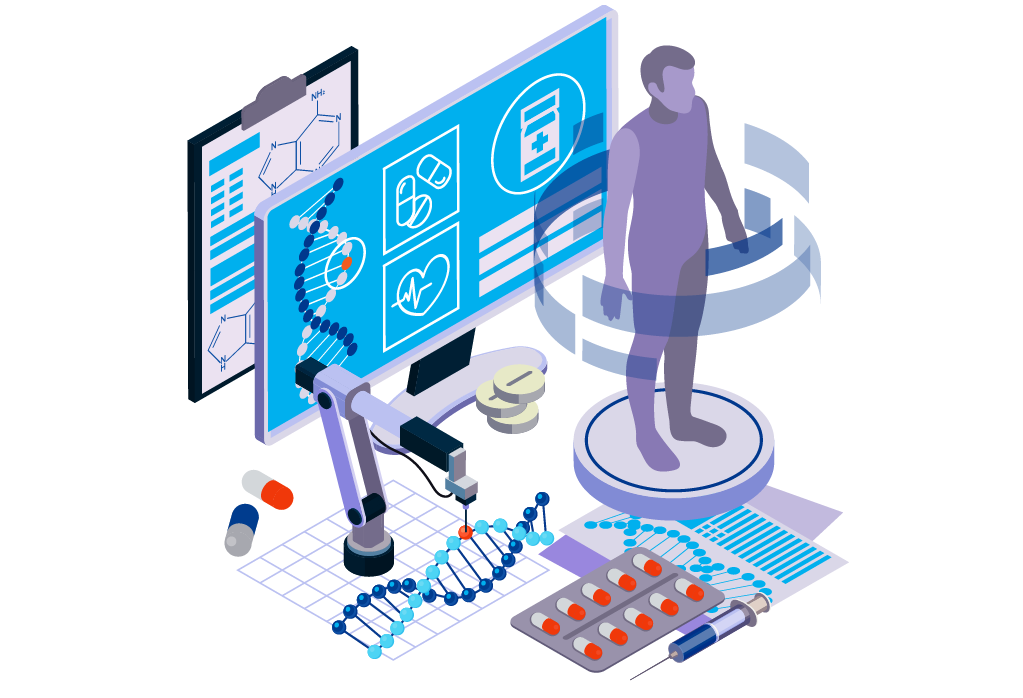 This heightened level of precision not only expedites diagnoses but also contributes to tailoring treatment plans personalized to individual patient’s needs, optimizing therapeutic approaches for better health outcomes. Moreover, the predictive capabilities harnessed by deep learning afford healthcare providers a proactive edge, offering insights into disease progression and potential complications. This foresight enables preemptive measures, empowering the customization of patient care to potentially mitigate or manage the advancing conditions more effectively.
This heightened level of precision not only expedites diagnoses but also contributes to tailoring treatment plans personalized to individual patient’s needs, optimizing therapeutic approaches for better health outcomes. Moreover, the predictive capabilities harnessed by deep learning afford healthcare providers a proactive edge, offering insights into disease progression and potential complications. This foresight enables preemptive measures, empowering the customization of patient care to potentially mitigate or manage the advancing conditions more effectively.
The impact transcends diagnostics, extending to drug discovery and development. Deep learning expedites the identification of potential compounds, accelerates drug validation, and facilitates innovative medication creation. Moreover, administrative functions benefit from deep learning, streamlining operations by optimizing patient scheduling, resource allocation, and administrative workflows. The adaptive nature of deep learning models continuously evolves and refines, providing insights from extensive datasets that were previously challenging to interpret. Its applications span rare disease identification, prognostic patient outcomes, and revolutionizing operational efficiencies within healthcare institutions. Deep learning’s integration is more than just a technological advancement; it symbolizes a fundamental shift towards a future where healthcare is not just about treating illnesses, but also about proactive management and precision-based care.
Revolutionizing the Future of Deep Learning in Healthcare
Deep learning, a pioneering subset of artificial intelligence, is poised to redefine the future landscape of healthcare, promising groundbreaking transformations across various realms of the industry. Its potential is not only evident in the present but is also a herald of revolutionary changes in the foreseeable future. With its capacity to process vast datasets and unveil intricate patterns, deep learning stands as a beacon of hope, offering a multitude of solutions and innovations that are bound to reshape the healthcare domain. Looking ahead, one of the most impactful areas where deep learning is set to revolutionize healthcare is diagnostics. Its ability to interpret medical imaging data, from X-rays to MRI scans, with exceptional precision is a testament to its potential to aid early and accurate diagnosis of diseases. 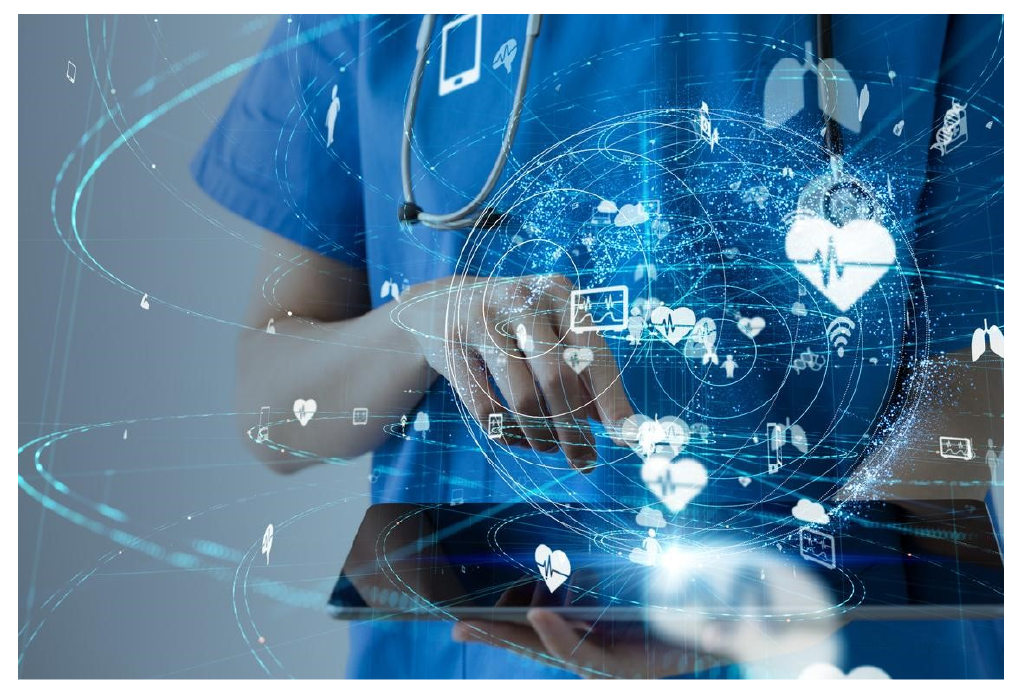 By analyzing patterns and anomalies within medical images, deep learning models enable healthcare professionals to swiftly and accurately detect and treat conditions in their early stages, potentially enhancing patient outcomes significantly.
By analyzing patterns and anomalies within medical images, deep learning models enable healthcare professionals to swiftly and accurately detect and treat conditions in their early stages, potentially enhancing patient outcomes significantly.
Moreover, predictive analytics, a key facet of Deep learning in medicine, empowers healthcare providers to forecast disease progression, offering a proactive approach to tailor treatment plans, thereby improving patient care and outcomes. This predictive capability not only assists in the treatment phase but also aids in preventive healthcare, enabling interventions to prevent the onset or progression of diseases. In the field of drug discovery and development, deep learning expedites the identification of potential compounds, hastening drug validation and enhancing the creation of innovative medications. Additionally, its integration into administrative functions optimizes healthcare operations, refining patient scheduling, resource allocation, and other administrative workflows for enhanced efficiency. The continuous evolution and learning capacity of deep learning models offers a glimpse into a future where healthcare is not just about treating diseases but also about proactive management and precise, personalized care.
Evolving Landscapes: Deep Learning’s Prognosis for Healthcare
Deep learning, an indomitable force in the technological realm, promises a seismic shift in the healthcare domain. Its impact spans diagnostics, treatment, and administrative efficiencies, redefining the very fabric of healthcare delivery. However, in this era of dynamic advancements, the choice of a reliable and innovative partner becomes pivotal for organizations seeking to leverage the potential of deep learning in healthcare. Pattem Digital emerges as the beacon for those envisioning a transformative journey within the healthcare landscape.
As a pioneering force in the realm of technological innovation, Pattem Digital stands at the forefront, offering a gateway to harness the transformative power of deep learning in healthcare. The integration of deep learning within healthcare systems is more than just an incorporation of cutting-edge technology; it embodies a paradigm shift towards proactive, precise, and patient-centric care. Pattem Digital’s expertise lies not only in the deployment of sophisticated algorithms but in the strategic application of these technological advancements, facilitating healthcare institutions to navigate the future of medical care with unparalleled efficiency and accuracy.
Pattem Digital, a leading deep learning development company, prowess in deep learning transcends the conventional realms, harnessing its potential to detect anomalies in medical imaging, predict disease progression, and streamline administrative tasks within healthcare systems. With a commitment to innovation and a track record of delivering technological marvels, Pattem Digital offers bespoke solutions, empowering healthcare providers to stay ahead in the evolving landscape of medical care. Choosing Pattem Digital means embracing a future where healthcare isn’t just about treating illnesses but about redefining precision, proactive care, and patient well-being.
